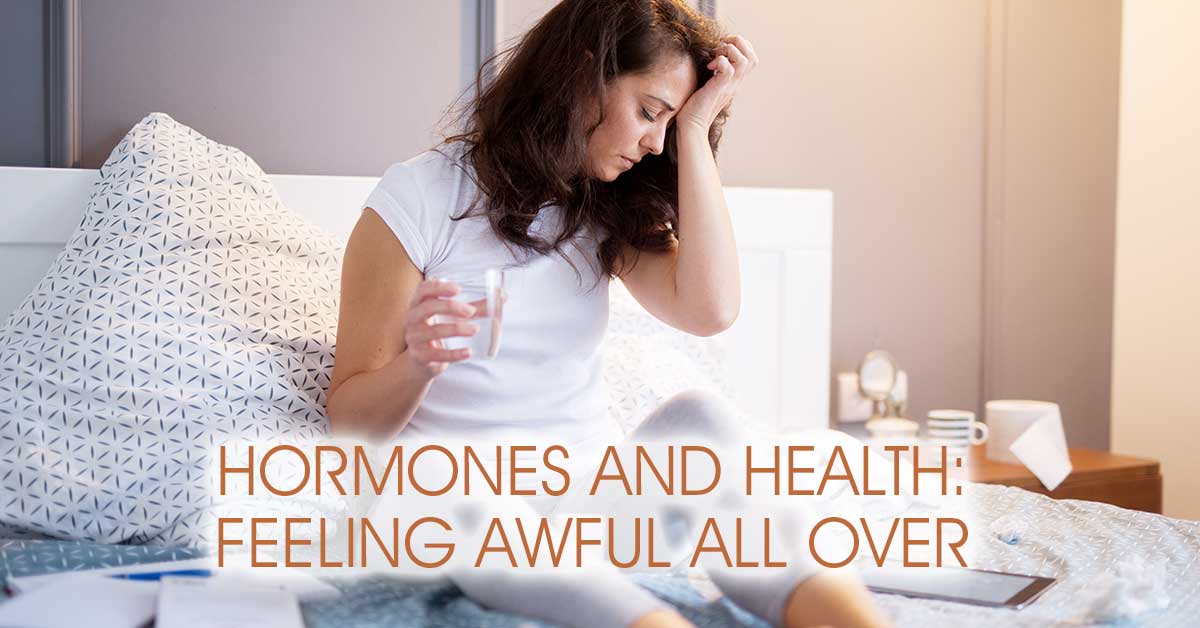Hormones and Depression: It’s No Laughing Matter
Feel Like You’re Losing It?
If you’re suffering from what seems like debilitating depression, whether you’re a man or women, it’s a good chance what you’ve lost is the hormonal balance that keeps your mood in balance. And there are many different hormones that effect your moods; thyroid, adrenaline, cortisol, and the sex hormones estrogen, testosterone and progesterone. The fluctuation of these hormones has been linked to a whole gamut of mental health symptoms and unfortunately there is still a stigma that make some people view depression as weakness. No matter what you do, you feel like you’re done in. The anxiety is overpowering. At times, you’re even paralyzed with panic. You’re in a dark hole and can’t drag yourself out. The World Health Organization claims that nearly 300 million people around the world also suffer from depression. So you’re not alone. And certainly not “crazy”.
Pregnant and Hormotional
Pregnancy is supposed to be a blissful time, filled with happy anticipation. But for some, it’s filled with just plain anxiety. Feeling blue, instead of rosy pink and positive. Some women have their first experience with significant depression during pregnancy, or after pregnancy (post-partum depression). In fact, anywhere from 14 to 23 percent of pregnant women experience depression (known as antepartum depression), while an estimated 5 to 25 percent experience depression after they give birth (known as postpartum depression). Tear flow in rivers, sometimes it’s hard to get out of bed. Often, the same hormonal fluctuations that wreak premenstrual emotional havoc can lead to prenatal depression. In fact, research has found that women who suffer from pronounced PMS are at greater risk for depression during pregnancy.
Antidepressants–Band Aids for a Multitude of Symptoms
You can’t tell someone suffering from depression, “just snap out of it”. General practitioners and even psychiatrists offer up another solution which can come with debilitating symptoms of their own; anti-depressants to the rescue. But often, the diagnoses are inaccurate. What accounts for the upsurge in these diagnoses? It is unlikely that we can blame it all on our brains. Human physiology changes very slowly. Fluctuating hormones can cause depression or extreme mood shifts that can resemble bipolar disorder. Quick…more meds. Meds that can actually cause more depression, anxiety, fatigue or even racing hearts. Maybe you should be anti-antidepressants, and get your hormones checked first.
Before You Panic…
Make an appointment to see the hormone specialists at Denver Hormone Health. Every one of the doctors at Denver Hormone Health is experienced in everything that has to do with hormones and the effect on your body when they are out of balance. Including depression. At Denver Hormone Health, it is their sole mission to see if your symptoms indicate a hormone imbalance. Which they can determine with simple tests. Instead of antidepressants, they are able to restore balance naturally, by getting to the real root of your depression. And get you back to feeling free of your funk. So call Denver Hormone Health today. You’ll not only get answers, you’ll feel fabulous.


